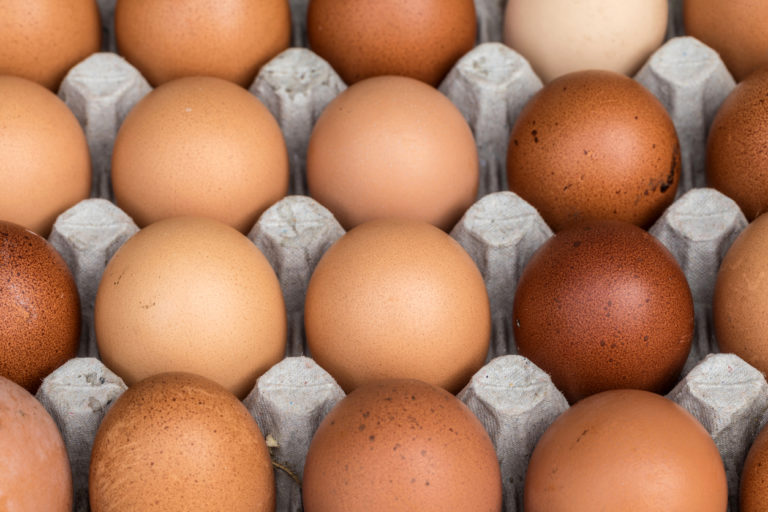It’s extremely important these days to know where your food is coming from, especially if it’s in the produce category. Remember, the romaine ordeal only happened last year, completely changing the way our favorite leafy green was packaged forever. Now, every package states its origin — just in case another big scare happens. You’d assume that this means our food is becoming safer, but shockingly, there are a lot of food scams out there that might make you question everything.
Now, you’re probably aware of a few grocery store scams. Even though we all need food, there are so many companies out there that are competing for your patronage. That means that sometimes, they’ll hide bad produce in a bag of otherwise good-looking produce in order to move it, or maybe offer up a “deal” that’s actually costing you money.
But, there are scams happening behind the scenes, as well. Turns out, you might be buying stuff you didn’t intend to buy. And even though it’s usually not bad enough to make people sick, it’s still a way to deceive customers.
The more you know about your food, the better. You can’t always trust grocery stores and smaller companies to be telling you the truth when it comes to the items you buy. Here are a few things you’ll definitely want to keep an eye out for.
1. Fake Olive Oil
There’ve been a lot of controversies surrounding olive oil in the past.
While some claims are accurate, others aren’t. Snopes did investigate and found out that a ton of oil labeled as “extra virgin” probably shouldn’t be. In case you were curious, Snopes reported that extra virgin olive oil is usually free from defects. When samples were taken, many of the grocery store oils just didn’t pass the test. It’s still olive oil, but you’re probably paying more than what you should.
2. Fake “Wild” Salmon
Back in 2015, Time published a story that said that a lot of “wild” fish was actually factory farmed.
In total, 82 samples of wild salmon were tested. Out of those, 43% were found to be mislabeled, and 69% were farmed. How did they know? DNA. Which is a test you probably won’t be able to do at home, unless you’re in the industry. Fortunately, someone out there is looking out for us and our hard-earned money.
3. Expired Baby Formula
If you’ve ever had a baby who’s used formula, you know there are a lot of rules.
For one, if the lid is off for a long period of time, you might as well just toss the entire container. It’s always important to check the date before buying, especially since many grocery stores are lax when it comes to making sure expired products are off the shelves. Even though companies like Walgreens have been sued for it before, it’s still more common than you think. In 2016, an investigation was also done in Wisconsin — and plenty of companies were guilty of selling it.
4. Counterfeit Wine
Wine lovers won’t be too happy when they learn that counterfeit wine is a legit issue.
In 2018, Forbes wrote that wine collectors should be aware of the fact that their rare wines may actually be something different than they think. They even called it a “billion dollar plus problem.” This isn’t as big of an issue if you drink the cheaper stuff, but it’s still upsetting.
5. Fraudulent Saffron
It’s easier than you think to peddle fake spices, but saffron is a big one.
Probably because it’s the most expensive spice out there. That means that plenty of fake saffron gets sold. Either it’s not saffron at all, or it’s not the type of saffron that it’s labeled as. The most common replacement, according to Conflict Food, is safflower. While it resembles saffron, the smell is completely different — and it’s certainly not what we paid for.
6. Tuna-Less Sushi
Next time you plan on grabbing some to-go sushi at the grocery store, you might want to read the label.
Most sushi rolls that claim they contain white tuna actually don’t. According to Delish, white tuna is a rarity. What people are likely eating is escolar, which can actually give you diarrhea. Scams like this may be shady as-is, but the fact that it’ll also make you sick? No thanks.
7. Apple Juice With Pesticides
There’s a lot to be cautious about in terms of juice.
Since apple juice is cheap, many companies use it to help dilute their more expensive juices and rip you off. But that’s not all. This year, Consumer Reports stated that plenty of fruit juices, notably apple, contained a fair amount of metals and yes, even pesticide. Since kids drink a lot of juice, it’s even scarier. You might want to limit their intake based on all the sketchiness around the juice industry.
8. Cage-Free Eggs
Cage-Free doesn’t mean Free Range.
Sometimes, it means they’re in larger cages that aren’t standard. Other times, they’re stuck in a building with no access to the outside. Even though the chicken isn’t being treated better, you’re still paying more and scammed into thinking you’re making a more humane choice at the grocery store.
9. Kobe Beef
If you live in America and regularly buy Kobe beef, you’re probably being scammed.
Why? Well, because actual Kobe beef never leaves Japan. If you’re lucky, you’re eating Wagyu, which is still rare, yet a little more common. But it’s pretty typical for restaurants to label their beef as being Kobe when it’s not the real deal. Next time, you should question an employee to see what they say. Maybe they don’t even know what they’re serving.
10. Counterfeit Tomatoes
How many times have you seen a bunch of different tomato baskets and wondered how different they were, really?
It’s not only fresh tomatoes that can be easily mislabeled. According to Food & Wine, most canned “San Marzano” tomatoes aren’t real. If they’re labeled as diced, they’re automatically fake, as the real tomatoes are either sold in fillets or whole. Sorry to be the one to tell you that your tomatoes are all a lie.
11. Fake Truffle Oil
Olive oil isn’t the only type you need to look out for.
Most truffle oil is also fake, sadly. So if you’ve ever ordered truffle fries, you might have been scammed before your very own eyes. Truffles are often harvested by pigs, meaning that the oil is a very expensive commodity. So expensive, in fact, that it’s actually rare to find and somewhat useless on plenty of dishes.
12. Slightly Off Parmesan Cheese
It doesn’t matter if the container says “100% cheese.”
It still has fillers, and one of those fillers might be wood pulp. It sounds gross, but if you’re a fan of sprinkling some on your favorite carbs, you may have been duped. In fact, Castle Cheese sold non-parmesan Parmesan for 30 years before they were found out. That’s right — 30 years.
13. Mock Lobster
Bad news for shellfish fans.
A lot of times when you order lobster, you’re getting something totally different. Delish wrote that even chains like Red Lobster, with “lobster” in the title, may be serving you langostino, or “squat lobster,” instead. It’s a completely different thing, and is certainly not worth the price tag of an actual lobster.
14. Plumped Chickens
When you’re buying poultry at the grocery store, a lot of what you’re paying for is actually water.
By adding water and other additives, grocery stores can sell the chickens for more per pound. Added salt also makes the sodium content of chicken way higher than it should be. So not only is it bad for your wallet, but this otherwise healthy bird is not so great for your body.
15. Honey
The honey that you put in your morning tea may very well be fake.
And there’s nothing you can do about it. Honey is one of the biggest food scams out there. MyBeeLine reports that over 76% of the honey you buy in the grocery store is actually impostor honey that includes refined sugars. If you’re serious about getting the real stuff, you’ll want to read labels and research the best markets in which to find it.








